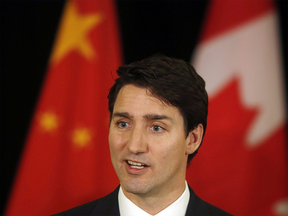
Canada in a ‘damn if you do, damned if you don’t’ conflict over trade policy implications with China
Mark Warner, principal counsel at MAAW Law, recently spoke with Financial Post’s Larysa Harapyn about the current state of Canada-China trade relations and the potential actions Beijing could take in response to the imposition of 100% tariffs on Chinese electric vehicles. This tense standoff has put Canada in a ‘damned if you do, damned if you don’t’ dilemma, as both sides appear willing to take drastic measures to assert their interests.
The Tension Between Canada and China
The friction between Canada and China has been growing for some time now, with ongoing trade disputes over a wide range of issues—from intellectual property rights to environmental regulations. However, the recent escalation in tariffs on Chinese electric vehicles has intensified tensions, raising concerns about the broader implications for global supply chains and economic stability.
The Imposition of Tariffs
China has long been a major player in the global electric vehicle market, supplying a significant portion of the industry. The move to impose 100% tariffs on Canadian-made EVs could severely disrupt trade relations between the two countries, potentially leading to a trade war. This would not only harm the economy but also have far-reaching consequences for international cooperation and global supply chains.
Beijing’s Potential Options
In response to such a significant threat, Beijing has made it clear that it will not back down without a fight. The Chinese government is likely considering a range of strategies to counteract the impact of these tariffs, including increased production of domestic electric vehicles, import bans on foreign EVs, and the development of alternative technologies.
The Broader Implications for Canada
Canada’s position in this dispute is particularly delicate. While the country has called for dialogue and cooperation, Beijing has shown no signs of budging. This has led to concerns within Canadian policymakers about the potential impact on jobs, industries, and economic growth.
The Need for Dialogue
Given the sensitive nature of this issue, it seems unlikely that a quick resolution will be reached. However, both sides have an obligation to engage in constructive dialogue to minimize mutual harm. The United States, which is currently imposing tariffs on Chinese goods, has been criticized for its approach, and Canada could learn valuable lessons from that experience.
Conclusion
The Canada-China trade dispute remains one of the most complex challenges facing global diplomacy today. As both countries navigate this thorny issue, it will be crucial to see how they can find common ground without compromising their national interests. Only then can a resolution emerge that benefits both nations and maintains global economic stability.


